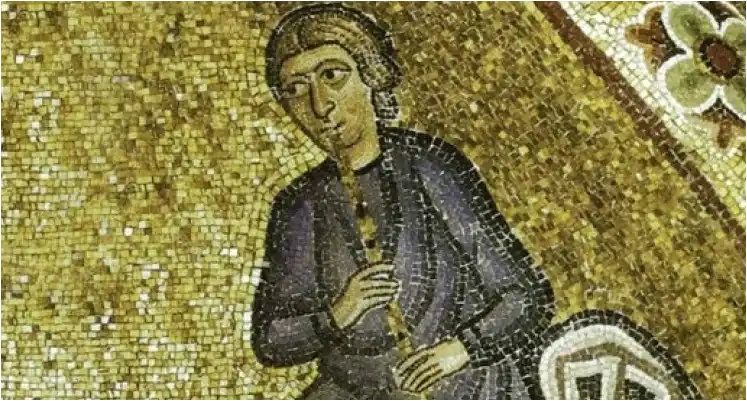The imperial court of Byzantium was a complex and often treacherous world, and one of its most unique and influential groups was the court eunuchs. To understand the inner workings of imperial power, one must ask: what role did eunuchs play in the Byzantine court? Far from being marginal figures, eunuchs were a powerful ‘third gender’ who could rise to the highest positions in the state bureaucracy and the church. Because they could not have children and found their own dynasties, they were seen as the most loyal and trustworthy servants of the emperor.
Table of Contents
👥 A ‘Third Gender’ in the Imperial Service
In the highly structured world of the Byzantine court, eunuchs occupied a unique social and political space. They were considered a ‘third gender,’ distinct from both men and women. This status gave them access to spaces that were off-limits to other men, particularly the private women’s quarters of the palace, the *gynaikonitis*. This proximity to the imperial family, especially the empress, gave them a unique position of intimacy and influence. Their inability to father children also meant they could not be dynastic rivals to the emperor, making them appear inherently more loyal than the ambitious nobles of the great aristocratic families.
🏛️ Eunuchs as Powerful Ministers and Generals
Because of this perceived loyalty, eunuchs were entrusted with some of the most powerful positions in the empire. They often served as the *parakoimomenos*, the emperor’s chief minister and chamberlain, a position of immense influence and power. Eunuchs could also command armies, serve as diplomats, and manage the vast imperial bureaucracy. Figures like the eunuch general Narses under Justinian I were among the most capable military commanders of their time. This demonstrates that in Byzantium, talent and loyalty could allow a eunuch to overcome social stigma and rise to the very pinnacle of the state.
почему Their Ambiguous and Contested Status
Despite their power, the status of eunuchs was always ambiguous and often contested. While they were trusted at court, they were also figures of scorn and suspicion in the broader society, often stereotyped as greedy, deceitful, and sexually deviant. Their physical difference marked them as outsiders, and their power was a source of resentment for the traditional male aristocracy whose positions they often usurped. This social tension highlights the complex and often contradictory nature of power, gender, and identity in the Byzantine world.
—
James, Liz, editor. A Companion to Byzantium. Wiley-Blackwell, 2010.
More Topics
- How Macedonians Shaped the Broader Hellenistic World
- How Prehistoric Macedonia Set the Stage for a Kingdom
- How Social Customs Shaped the Macedonian Elite
- How the Macedonian Economy Fueled an Empire
- How the Antigonid Dynasty Ruled Macedonia After Alexander
- What Was Daily Life Like in Byzantium? Health, Disease, and Medicine
- How the Byzantine Army Defended a Millennium-Long Empire

